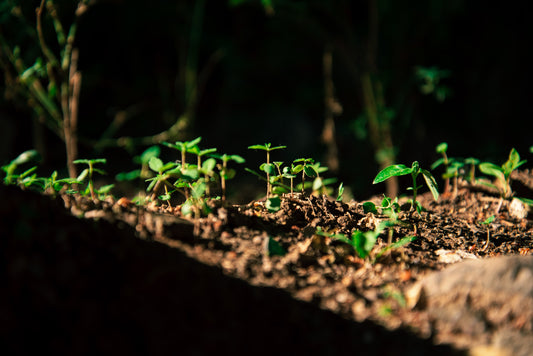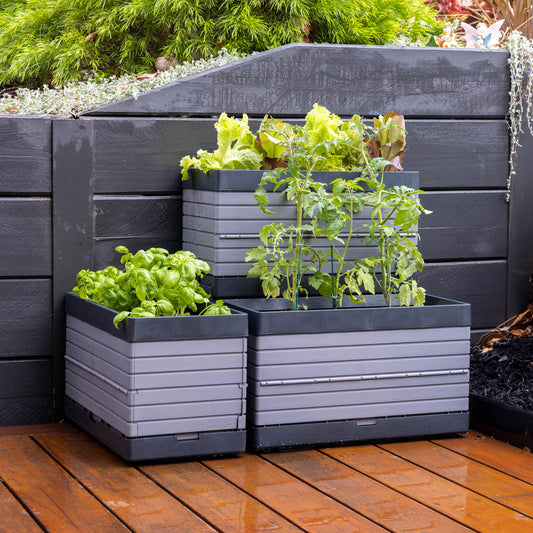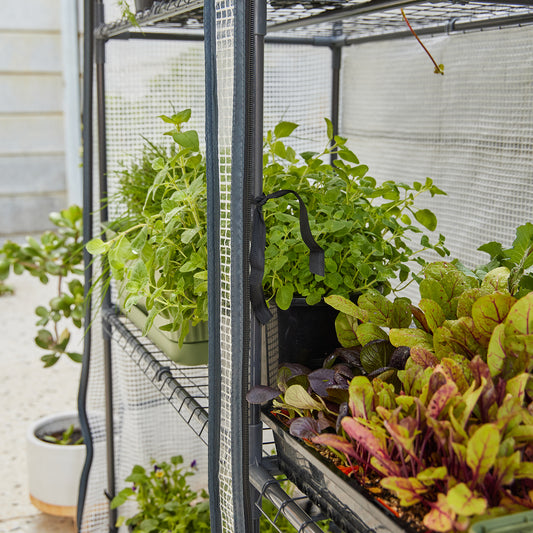
Finding the Perfect Spot for Your Raised Garden Bed

Thinking about starting a raised garden bed but unsure where to position it? You've come to the right place!
We share some important factors to consider when it comes to finding a home for your raised garden bed.
Sunlight
Plants, like us, need sunlight to thrive. When choosing a location for your raised garden bed, it's important to find a spot that receives ample sunlight. Most edible plants need at least 6-8 hours of direct sunlight per day. Observe your yard throughout the day and identify areas that are sun-soaked. Ideally, your garden bed should be placed in a spot that attracts sunlight for most of the day as it means optimal photosynthesis can occur, leading to healthy growth.
Drainage
Good drainage is critical for the success of your raised garden bed. Excessive water can drown the plants and cause root rot. Avoid low-lying areas where water pools or areas with compacted soil that inhibits proper drainage. Instead, opt for a location with well-draining soil to prevent waterlogging.
Proximity to Water
While it's crucial to prevent waterlogging, it's equally as important to have a water source nearby. Regular watering is vital, especially during dry spells and for young plants. Consider the proximity of your raised garden bed to a water source like an outdoor tap or rain barrel.
Accessibility
Another key consideration is the accessibility of your raised garden bed. It's important to choose a location that is easily accessible for planting, maintaining, and harvesting. Ensure there is sufficient space around the garden bed for you to comfortably work.
Finding the perfect spot for your raised garden bed is an important step towards gardening success. Be sure to consider sunlight, drainage, proximity to water and accessibility when placing your garden bed.
Happy growing!

